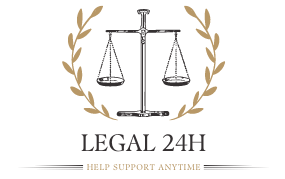
Contract disputes are a common challenge in both personal and professional settings. Understanding how to navigate these disputes efficiently is crucial for maintaining healthy relationships and avoiding costly litigation. This article provides comprehensive legal guidance on handling contract disputes, covering various aspects from identifying the problem to seeking resolution.
Identifying Contract Disputes
Common Causes of Contract Disputes
Contract disputes can arise from various issues. Common causes include misunderstandings, breaches of contract terms, and disagreements over contract interpretation. Recognizing these causes early can help in addressing them more effectively.
Early Detection of Disputes
Detecting a dispute early can prevent it from escalating. Signs of a potential dispute include delayed payments, failure to meet deadlines, and lack of communication. Being vigilant about these signs can help in taking timely action.
Impact of Disputes on Relationships
Contract disputes can strain relationships between parties. Understanding the impact of these disputes on business and personal relationships is essential for finding amicable solutions. Maintaining open communication can mitigate the negative effects.
Legal Framework for Contract Disputes
Understanding Contract Law
Contract law governs the creation and enforcement of agreements. Familiarity with the basics of contract law is essential for anyone involved in drafting or signing contracts. This knowledge can help in identifying potential legal issues.
Types of Contracts
There are various types of contracts, including written, oral, and implied contracts. Each type has its legal implications and requires different approaches in case of a dispute. Knowing the type of contract involved is crucial for appropriate action.
Legal Obligations of Parties
Parties involved in a contract have specific legal obligations. Understanding these obligations helps in determining whether a breach has occurred and what remedies are available. Clear knowledge of legal duties can aid in resolving disputes.
Steps to Resolve Contract Disputes
Negotiation
Negotiation is often the first step in resolving contract disputes. It involves direct communication between parties to reach a mutually acceptable solution. Effective negotiation can save time and resources.
Mediation
Mediation is a voluntary process where a neutral third party helps the disputing parties reach an agreement. It is less formal than litigation and allows for creative solutions. Mediation can preserve relationships by fostering cooperation.
Arbitration
Arbitration is a more formal process where an arbitrator makes a binding decision on the dispute. It is often faster and more cost-effective than court proceedings. Understanding the arbitration process can help in preparing for this method of dispute resolution.
Preparing for Legal Action
Collecting Evidence
Gathering relevant evidence is crucial for building a strong case. This includes documents, emails, and any communication related to the contract. Proper documentation can support your position in a dispute.
Understanding Legal Rights
Knowing your legal rights is essential when preparing for legal action. This includes understanding the terms of the contract and the applicable laws. Legal advice can be invaluable in clarifying your rights and options.
Consulting Legal Experts
Consulting with legal experts can provide valuable insights and guidance. Lawyers specializing in contract law can help in assessing the situation and advising on the best course of action. Professional legal advice can increase the chances of a favorable outcome.
Court Procedures for Contract Disputes
Filing a Lawsuit
Filing a lawsuit is a formal way to resolve contract disputes. It involves submitting a complaint to the court and following legal procedures. Understanding the steps involved can help in navigating the legal system effectively.
Court Hearings
Court hearings are scheduled to present the case before a judge. Both parties have the opportunity to present evidence and arguments. Being prepared for court hearings is essential for a successful case.
Judgment and Enforcement
After the court hearing, the judge will issue a judgment. This judgment is legally binding and must be enforced. Understanding the enforcement process ensures that the judgment is implemented correctly.
Alternative Dispute Resolution Methods
Collaborative Law
Collaborative law involves both parties and their lawyers working together to resolve the dispute. It focuses on cooperation rather than confrontation. This method can lead to more amicable and lasting solutions.
Summary Judgment
Summary judgment is a legal process where the court decides the case based on the submitted evidence without a full trial. It is used when there is no dispute over the material facts. This method can expedite the resolution process.
Small Claims Court
Small claims court is designed for resolving minor disputes involving smaller amounts of money. It offers a simplified and cost-effective legal process. Knowing when to use small claims court can save time and resources.
Preventing Future Disputes
Clear Contract Drafting
Drafting clear and comprehensive contracts is the first step in preventing disputes. This includes detailing all terms and conditions and avoiding ambiguous language. A well-drafted contract can minimize misunderstandings.
Regular Review and Updates
Regularly reviewing and updating contracts ensures they remain relevant and enforceable. Changes in circumstances or laws may require contract modifications. Keeping contracts up-to-date can prevent future disputes.
Open Communication Channels
Maintaining open communication channels between parties can prevent disputes from arising. Regular check-ins and discussions about contract performance can identify potential issues early. Effective communication fosters trust and cooperation.
Role of Legal Professionals
Hiring a Contract Lawyer
Hiring a contract lawyer can provide expert guidance and representation. Lawyers can assist in drafting, reviewing, and negotiating contracts. Their expertise can prevent disputes and ensure legal compliance.
Benefits of Legal Consultation
Regular legal consultation offers ongoing support and advice. Legal professionals can help in interpreting contract terms and resolving any arising issues. Continuous legal support can enhance contract management.
Choosing the Right Legal Firm
Selecting the right legal firm is crucial for effective dispute resolution. Consider factors such as expertise, reputation, and cost. A suitable legal firm can provide the necessary resources and support for handling contract disputes.
Conclusion
Contract disputes are an inevitable part of business and personal relationships. Understanding the legal framework, knowing your rights, and taking proactive steps can help in resolving these disputes efficiently. Whether through negotiation, mediation, or legal action, having a clear strategy and the right support is essential for a favorable outcome.
